“I Bought a Meal for a Homeless Man, His Confession Was Beyond Anything I Could Imagine”
The narrator buys a warm meal for a homeless man as a simple act of kindness. The next day, the man finds the narrator, tearfully confessing something that deeply affects the narrator, revealing the profound impact of small acts of compassion.
The narrator offers a small act of kindness by helping a hungry homeless man, but within 24 hours, the man’s heart-wrenching confession catches the narrator off guard. This emotional encounter serves as a reminder of the unexpected connections that sometimes occur in life, leaving a lasting impact.
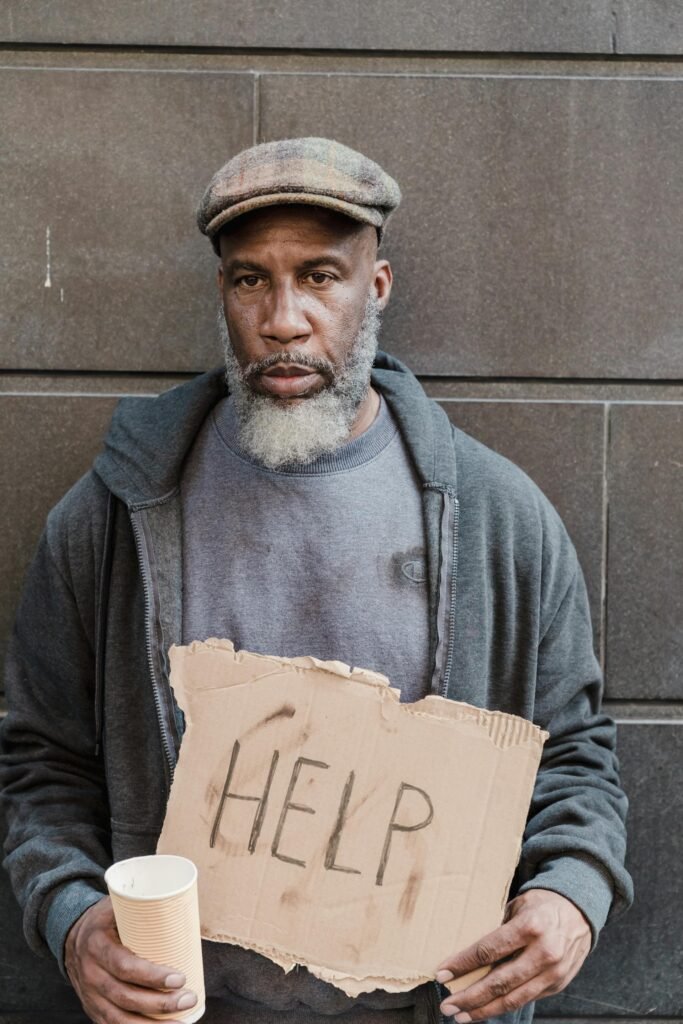
In the past two days, my life has felt like something out of an inspirational movie. I’m a mom to four lively children, aged four to eight, and I juggle my part-time teaching job with managing our home, while my husband Mason works as an engineer. Though our life isn’t extravagant, the sound of our children’s laughter fills our modest home with happiness.
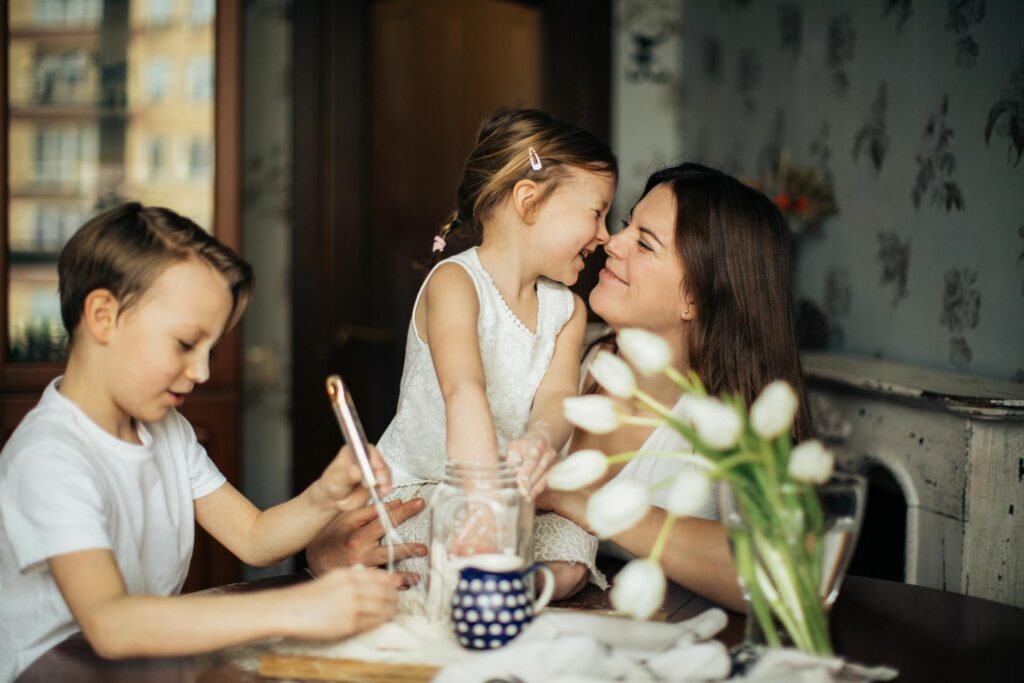
That morning began like any other: I was juggling a wrinkled shopping list in one hand and a much-needed coffee in the other, mentally planning how to stretch our budget for another week of feeding four growing kids. As I stood in the parking lot of Happinezz Mart, the buzzing fluorescent lights above and the crisp, wintery air set the scene for my weekly shopping routine.
Then I saw him—a homeless man holding a sign that simply said, “HELP.” What struck me first were his eyes. He wasn’t looking at anyone—just staring, almost lost, at the fresh bread and fruit displays through the store window.
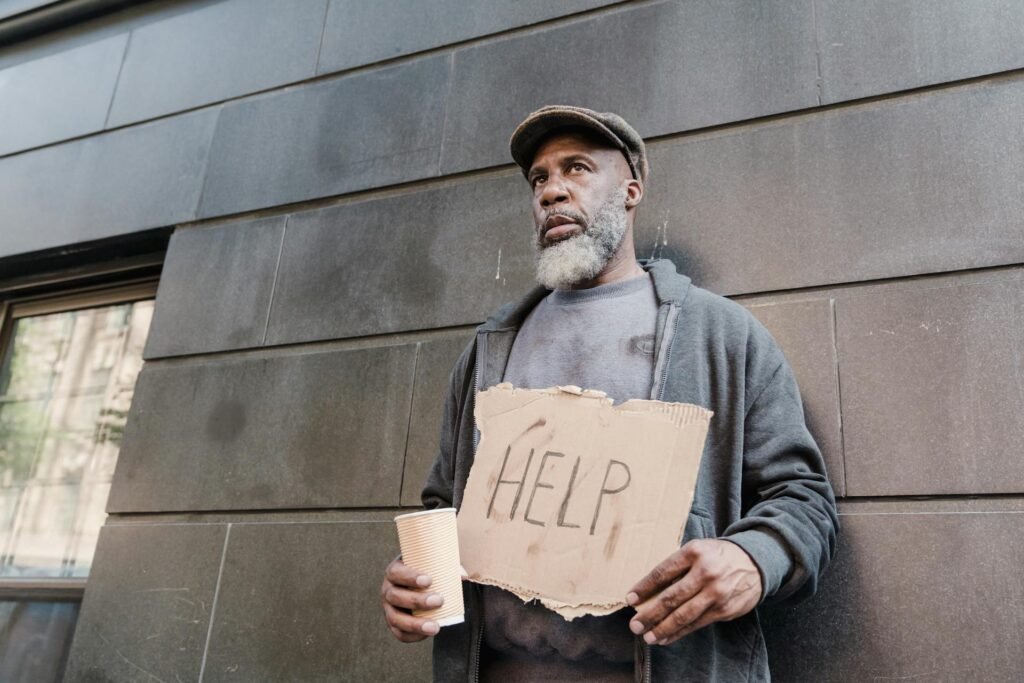
His weathered jacket hung loosely on his thin frame, and his gray hair peeked out from beneath a worn cap. His hands were clean but rough, like someone who had spent their life working hard.
I’m not sure what made me stop. Maybe it was the way his shoulders drooped, or how his fingers subtly reached toward his empty stomach. Or perhaps it was because he reminded me of my father, who passed away last year, carrying that same quiet dignity despite his struggles.
Dad had always told us that true strength wasn’t about never needing help, but about being brave enough to accept it when it was offered.

“Excuse me, sir,” I called out as I approached the man. “Are you hungry? Would you like something to eat?”
He turned slowly, and I saw the desperation in his eyes.
“More than you can imagine, young lady! I haven’t eaten since yesterday morning.”
My heart shattered for him. How many times do we walk past the homeless, blind to their suffering? How often do we truly see them—not just their circumstances—and offer them compassion, not just a meal?
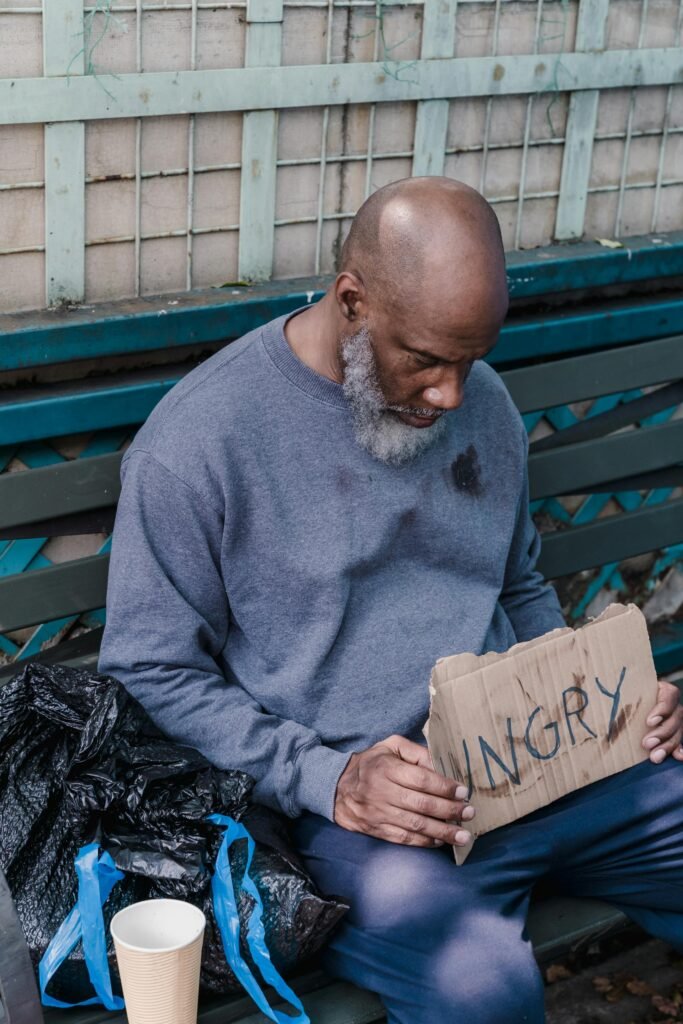
“Please, come shop with me, sir. I’m Greta. I’ll pay for your groceries.”
“Miss, I can’t accept—” he hesitated, but I gently interrupted him.
“No, please. Let me help,” I insisted, my voice soft but firm. I could see the struggle in his eyes, but I was determined to offer him this small kindness.
“I insist. Besides, I could use some company while I shop. My kids aren’t here to argue about which cereal has the better toy inside. And honestly, shopping alone is pretty boring.”
A small smile broke through his weathered face. “I’m Morgan. And… thank you. You remind me of my late daughter, Grace. She always helped people too.”
His words touched me deeply, and for a moment, I could see beyond the man standing before me, imagining the kindness and love he’d once received.

Walking through the aisles with Morgan was a lesson in humility. He would reach for the cheapest bread, the marked-down cans, pulling his hand back each time as though he feared he was asking for too much.
Every time he apologized, my heart ached just a little more.
“These are good,” he said quietly, pointing to some discounted soup cans. “They last a while. And they’re easy to heat up if… well, if you can find a place to heat them.”
His words, spoken with such quiet dignity, reminded me of how little we often understand the daily struggles of those who have so little.

“Let’s get some meatloaf and mashed potatoes, too,” I suggested, guiding us toward the deli section. “When’s the last time you had a proper, hot meal?”
Morgan’s eyes softened, misting over as he replied, “Been a while. Used to grow my own vegetables and sell them to buy those delicious meals, you know. Had a little garden behind my house—tomatoes, cucumbers, even some strawberries.”
As we moved through the store, I found myself talking about my family, filling the silence with stories about my kids. Morgan listened with such attention, as though every word I said was a treasure to him.
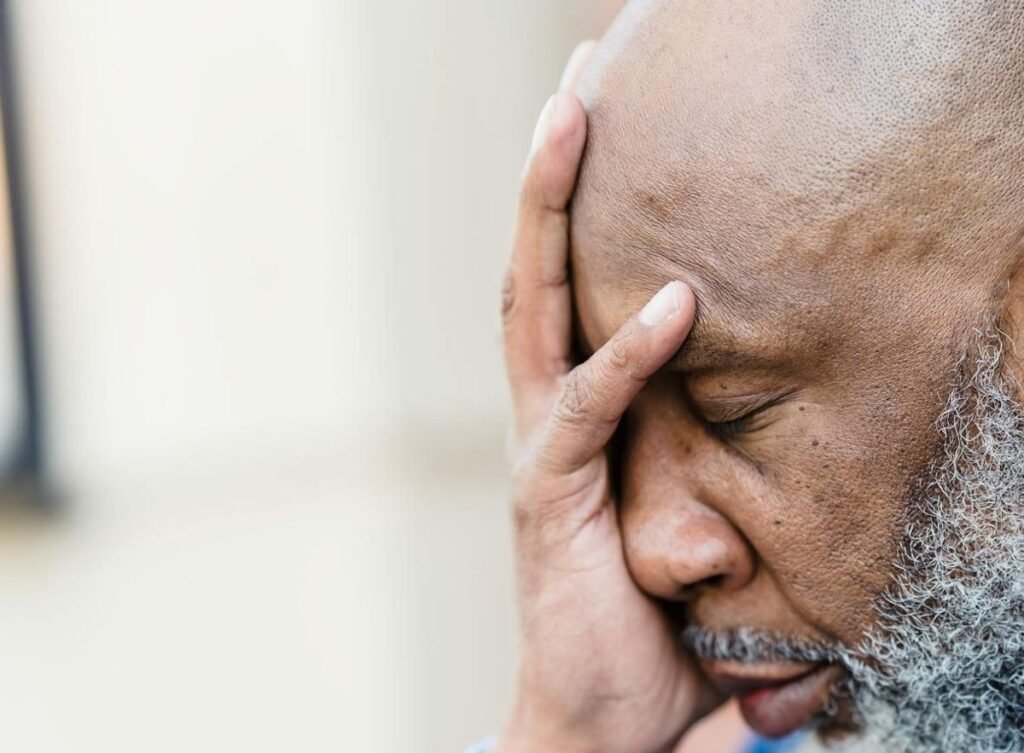
“My kids would love these,” I said, dropping some cookies into the cart. “The twins, they’re six, and they’d eat the whole package if I let them. Last week, they tried to convince me that cookies counted as breakfast!”
Morgan’s eyes softened. “How many children do you have?”
“Four of them,” I laughed, pulling out my phone to show him a picture. “The twins, Jack and James, they’re convinced they’re going to be soccer stars, even though they trip over their feet half the time. Then there’s little Lily, she’s four and obsessed with bubble gum. She once stuck gum in her brother’s hair, and we had to cut it out. And Nina, my eight-year-old bookworm.”
Morgan smiled gently as I shared my stories, his expression full of warmth and a hint of nostalgia.
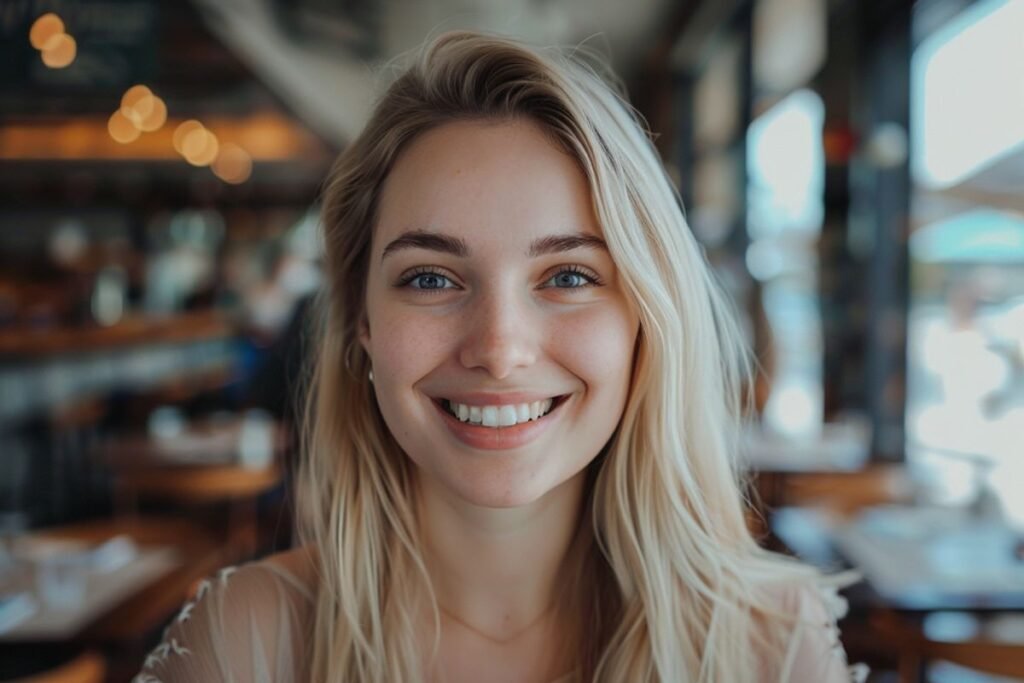
“She looks just like you,” Morgan said, pointing to Nina in the photo. “Same smile, same kind eyes. You have such a beautiful family.”
His words touched me deeply, and I felt a lump form in my throat. Despite the hardships he’d faced, there was a genuine warmth in his voice, as if he was seeing something special in my children—and in me—that I hadn’t fully appreciated myself.
“That’s what my husband always says. Though I think she got his brains, thank goodness! She’s reading at a sixth-grade level already. Sometimes I find her up past bedtime, flashlight under the covers, cooing, ‘Just one more chapter, Mom, please?'”
“They’re beautiful. You must be very proud,” Morgan said softly. “Sometimes I wonder…” He trailed off, and I pretended not to notice as he wiped his eyes with his sleeve.
His quiet vulnerability left an unspoken weight in the air, a reminder of the things he had lost along the way.
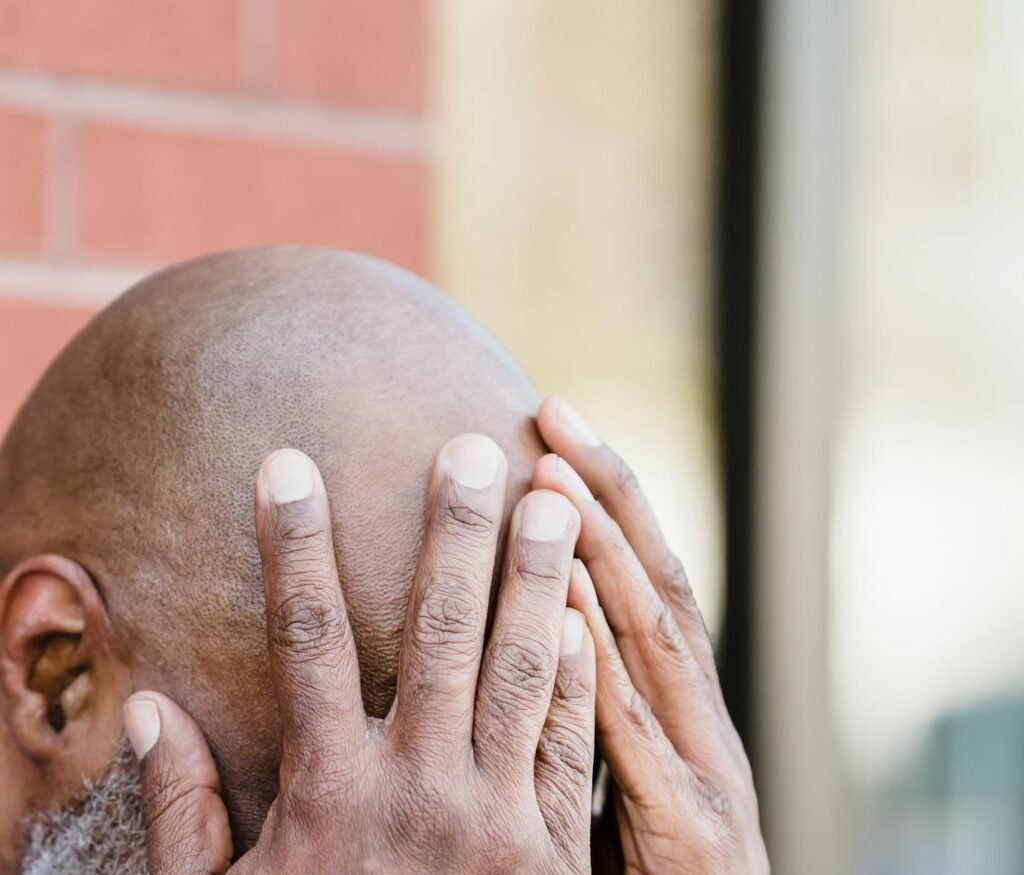
As we checked out, I noticed his hands trembling slightly as he helped bag the groceries.
When I handed him his bags, including both gallons of milk I’d bought, his eyes welled up.
“I don’t deserve this kindness,” he said, his voice thick with emotion.
I gently placed a hand on his shoulder, looking him in the eyes. “Everyone deserves kindness, Morgan. No one is beyond that.”
“Everyone deserves kindness, Morgan. Everyone.”
“Thank you, ma’am! God bless you.”
With those words, we parted ways. I watched as Morgan sat on the steps of the parking lot, eating his meal with a quiet, contented peace that reminded me of the power of simple acts of kindness.
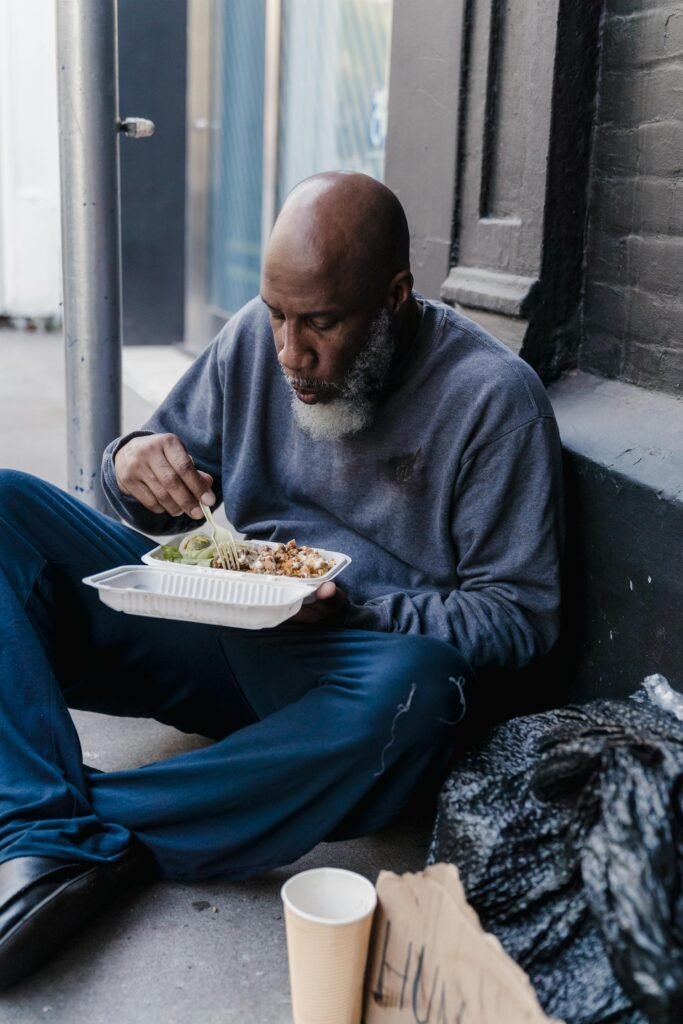
The next morning, my kids sat at the table, staring at their dry cereal bowls in frustration. Jack pushed his bowl away dramatically, while James pointed out that this was clearly the end of the world.
“Mom,” Nina looked up at me, “did you forget to buy milk yesterday?”
“Oops, sorry, honey! I’ll get it today, okay?”
I’d forgotten that I’d given both gallons of milk to Morgan, so here I was, back at the same grocery store, ready to face the morning rush. The twins had gone off to school with promises of chocolate milk in their lunchboxes tomorrow to make up for the breakfast disaster.

The parking lot was busier, filled with moms like me rushing to get their morning shopping done. A school bus rumbled past, reminding me I had only an hour before I needed to be at school myself, ready to face a classroom of energetic third graders.
The sounds of car doors slamming and shopping carts rattling filled the air.
I almost walked past him. The straight-backed man in the crisp military uniform couldn’t possibly be the same person I’d helped yesterday. But those eyes… I recognized them immediately.
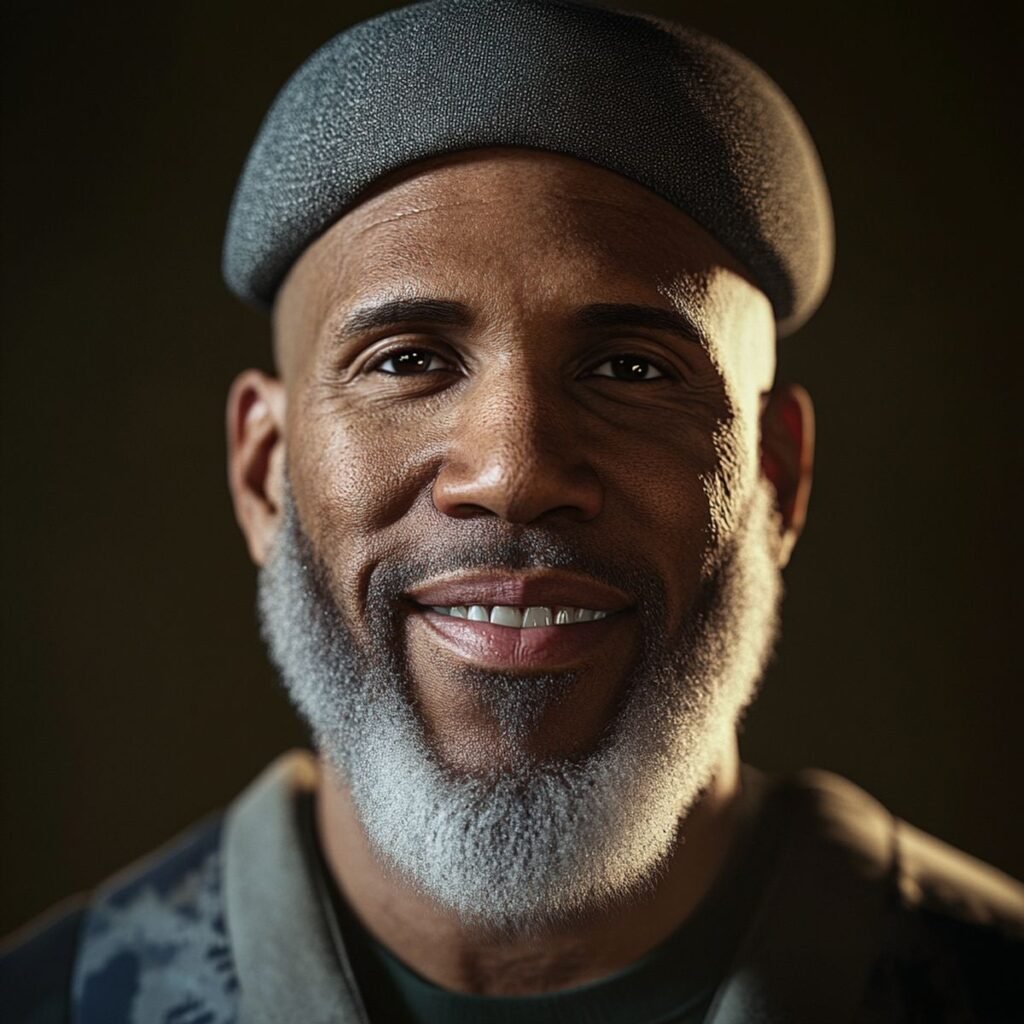
“Greta,” he called out, his voice stronger than the day before. “I hoped you’d come back. I’ve been waiting since dawn.”
“Wait a minute… aren’t you the homeless man I helped yesterday? Morgan, right?”
He gestured to a nearby bench. “Would you sit with me for a moment? I owe you an explanation. And maybe a thank you isn’t enough, but it’s where I need to start.”

“I was a Master Sergeant,” Morgan began, his fingers running over his uniform’s sleeve as we sat on the bench. “Twenty-six years of service. Lost good friends. Young men who never got to come home. But coming home… it was harder than leaving ever was.”
“What happened?” I asked softly, noticing how his hands clenched and unclenched as he spoke.
His voice trembled slightly as he began to share, and I could feel the weight of his memories, the unspoken pain that had brought him to this moment.
“PTSD. Depression. The usual story,” Morgan said, his voice thick with emotion. “My wife passed while I was overseas. Cancer. A year earlier, I’d lost my daughter in a tragic accident. Coming back to an empty house…” He shook his head, his words trailing off as if the weight of it all was too much to carry.
I could see the deep sorrow in his eyes, and the pieces of his life, shattered by loss and hardship, began to come together.
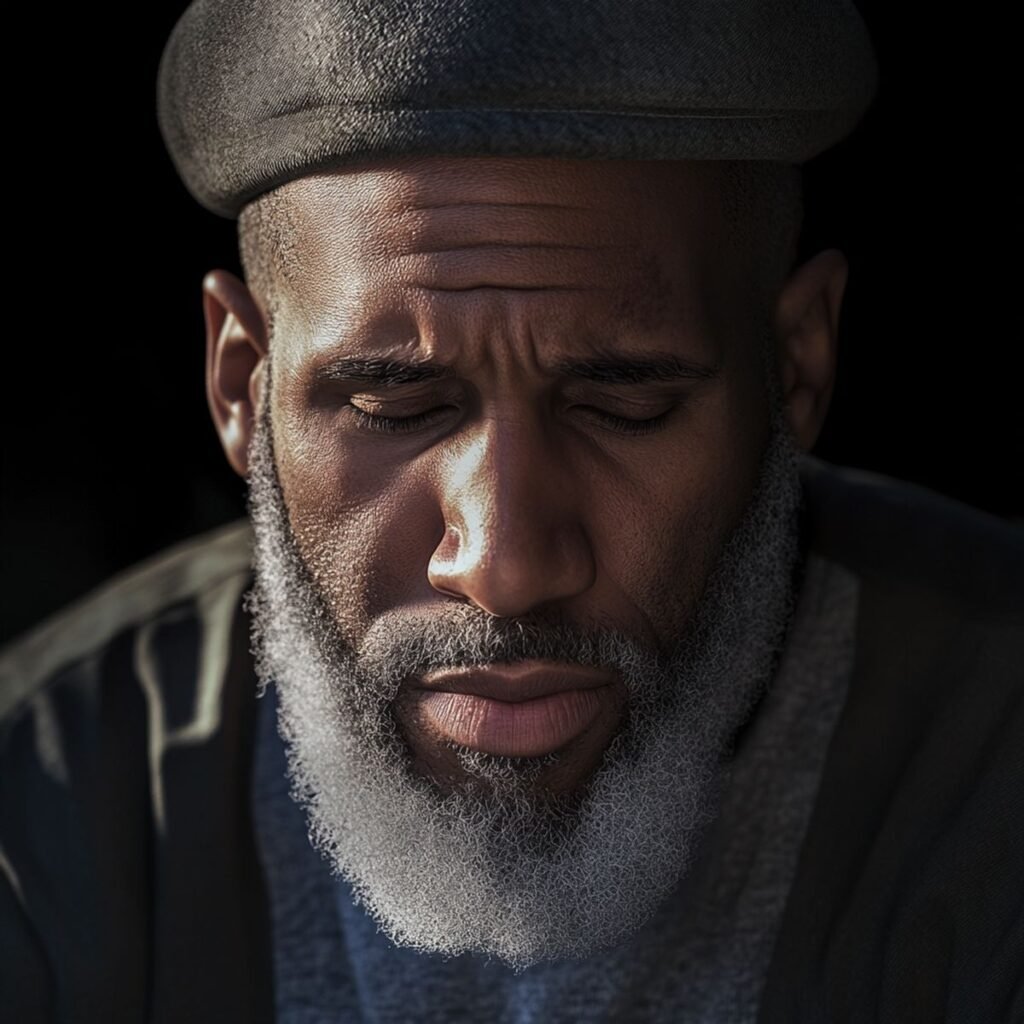
“The silence was the worst part. No one telling me to take my boots off before coming inside. No one breathing beside me at night. No one to call me… Dad. One day, I just walked away from everything. Couldn’t handle the memories. I thought it was the only way to escape the pain.”
I reached out and squeezed his hand, my eyes moist with empathy. He squeezed back, his grip firm but gentle.
“Yesterday, when you looked at me—really looked at me—and showed me such simple kindness… it broke something loose inside,” Morgan’s voice wavered, and I could see the weight of his past lifting just a little, the flood of emotions he’d kept buried for so long finally finding a way out.
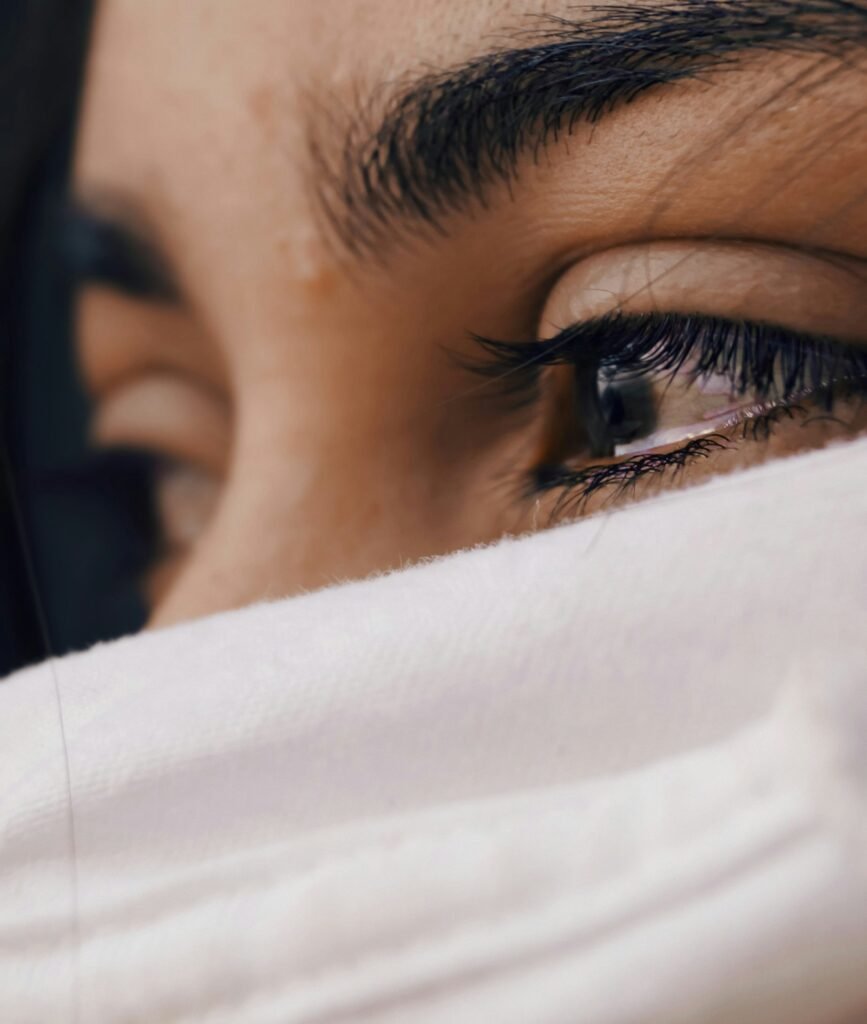
“And after you left, I stood there holding those bags of groceries, and for the first time in years, I felt human again. Not just a shadow sliding past people on the street.”
“So I walked into the VA office. Just walked right in. The lady at the front desk, she…” he paused, collecting himself. “She hugged me. Said they’d been worried sick about me. Turns out my old commanding officer had been looking for me for months. He even had people out searching the streets. I just… I never thought anyone would care enough to look.”
Morgan’s voice cracked, and for a moment, I didn’t know what to say. The depth of his loneliness, the sense of being forgotten, was a pain so many of us couldn’t fully understand until it was shared like this.
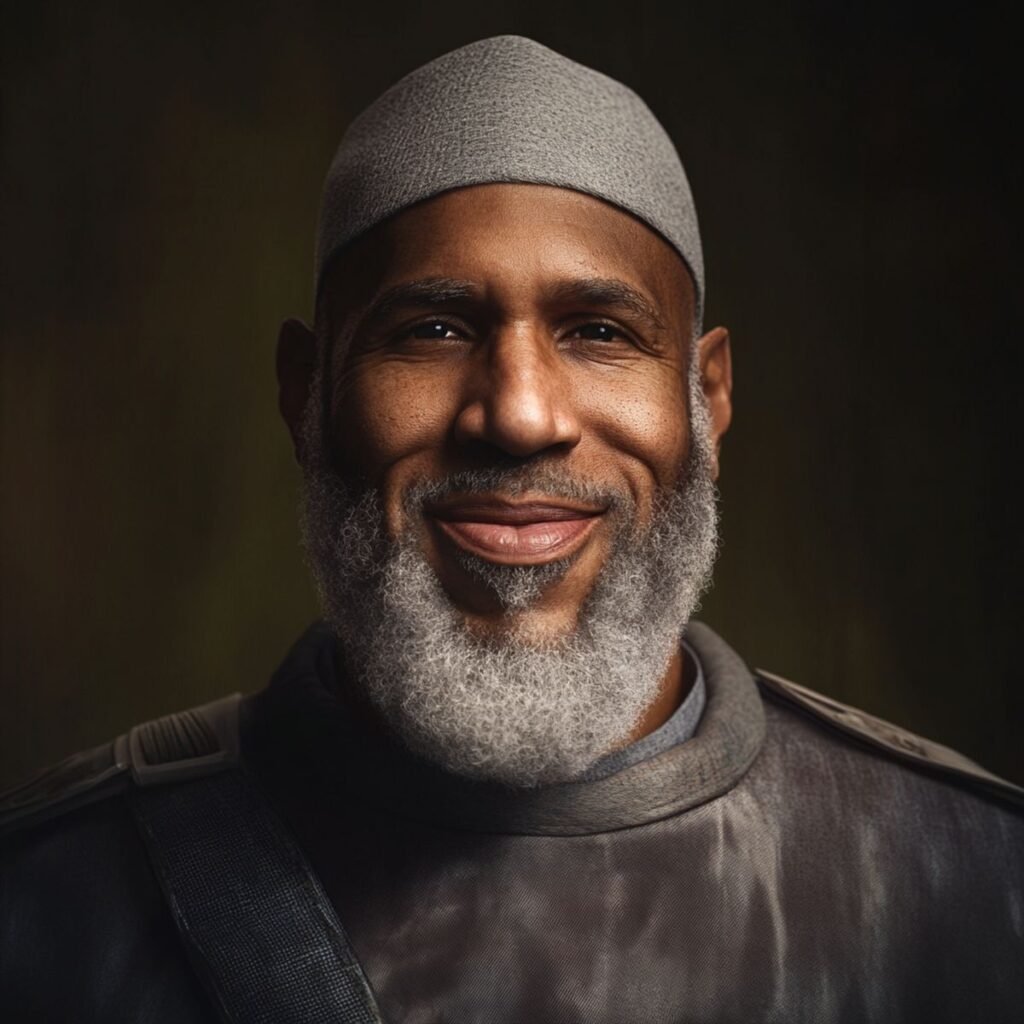
“They’re giving me a chance to help other vets,” Morgan continued, his face lighting up. “There’s this new program for soldiers just coming home. They want me to be a mentor and help them re-adjust before the darkness sets in. Share my story, you know? Show them there’s hope, even when it feels like there isn’t.”
“Morgan, that’s wonderful!” I felt tears sliding down my cheeks, overwhelmed by his transformation.
“Your kindness… it reminded me that I still have something to give,” he said, straightening his uniform jacket. “This morning, I got my first shower in months. Got my old uniform out of storage. Feels strange to wear it again. But positively strange. Like coming home… to a home I’m ready for this time.”
I could see the man in front of me—the man he’d been before the pain and loss—and I knew this was only the beginning of his journey back to himself.

He reached into his pocket and pulled out two gallons of milk. “These are for your kids. Bought them just now. Can’t have your little ones missing their breakfast because of me. And this—” he pressed a folded piece of paper into my hand, “is my number. If you ever need anything, anything at all…”
“What about you? Will you be okay?” I asked, still worried.
“The VA’s got me set up in temporary housing. Starting counseling tomorrow. And next week, I start working with the new vets. Turns out my experience… even the bad parts… they might help someone else make it through.”
His words brought me a sense of relief, and I realized that the kindness he’d received had ignited something in him—a chance for a new chapter, where he could give back, just as he had received.
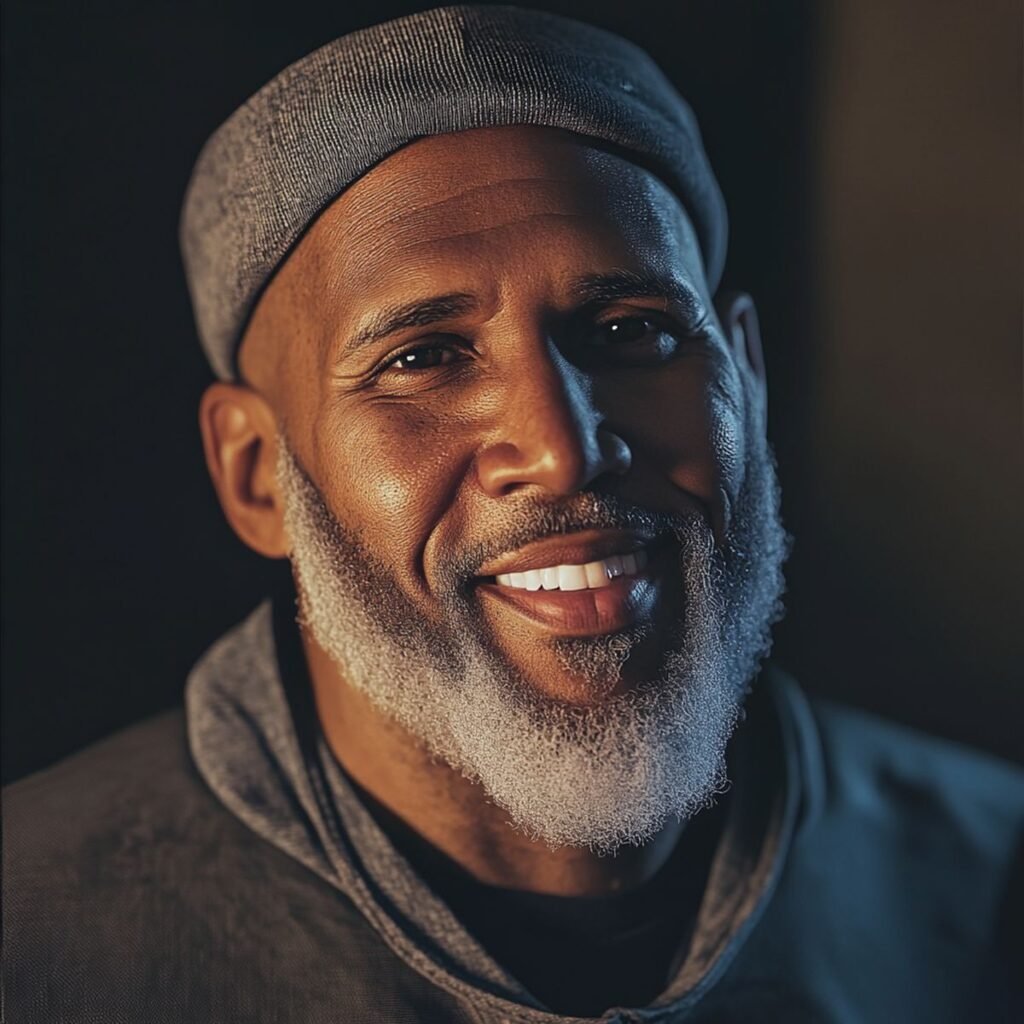
I hugged him tightly, not caring who saw. “Promise you’ll keep in touch?”
Morgan’s arms wrapped around me in return, his voice thick with emotion. “I promise, Greta. And thank you—for everything.”
As I pulled away, I saw the man who had once been lost, now standing tall, ready to face the future. I walked back to my car with a heart full of hope, knowing that sometimes, a simple act of kindness can change a life in ways we never expect.
Morgan smiled, and this time it reached his eyes.
“Promise. Just keep teaching those kids of yours about kindness, Greta. It saves lives. I’m living proof of that. And maybe someday I can meet them. Tell them some stories about their mom, the angel who saved an old soldier’s life with food and a gentle word of kindness.”
I held his gaze, feeling the weight and truth in his words. With a final squeeze of his hand, I turned to go, my heart lighter than it had been in a long time. He was right. Kindness truly had the power to heal and change lives. And today, it had changed both of ours.
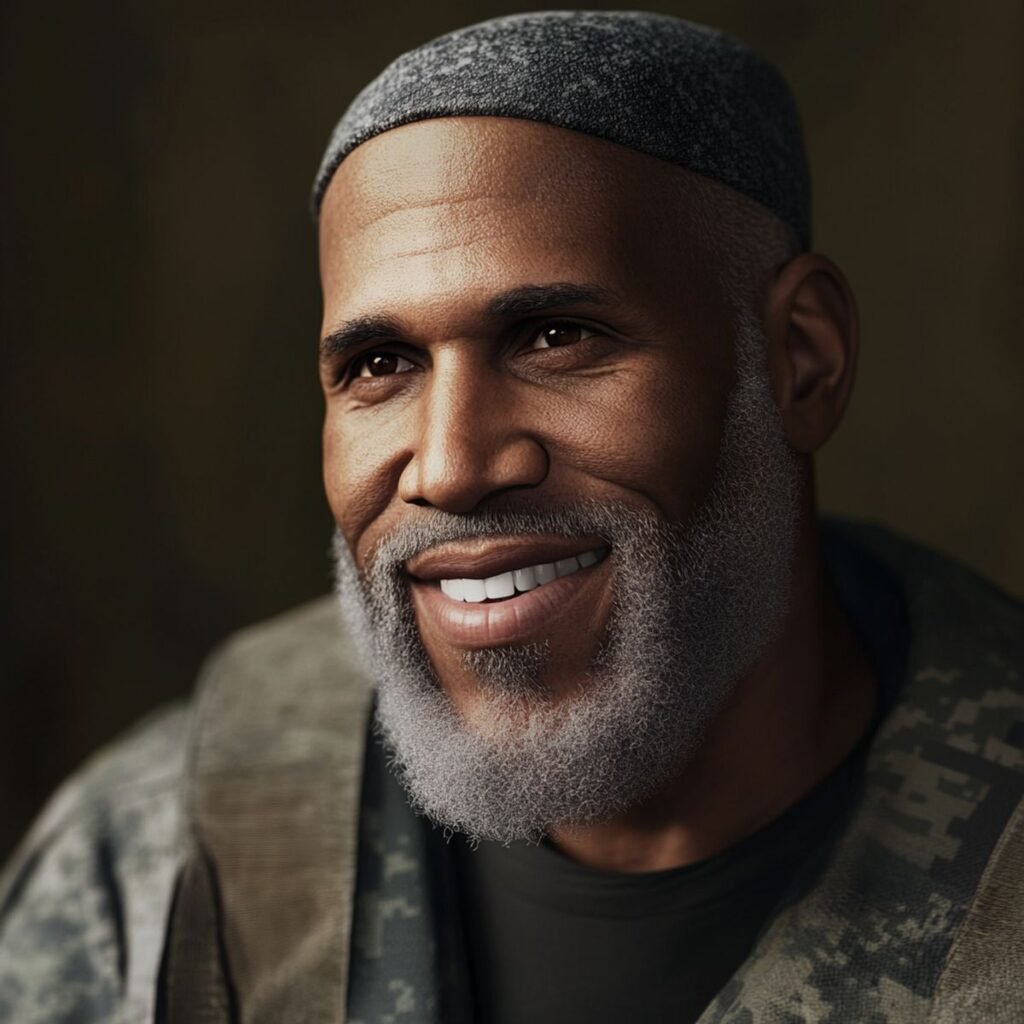
I watched him walk away, his uniform gleaming in the morning sun, his steps sure and purposeful. My heart felt so full knowing Morgan was safe and cared for now—that he’d have a warm bed, regular meals, and most importantly, a purpose again.
Sometimes the smallest acts of kindness create the biggest ripples, and I’m just grateful I got to be a part of Morgan’s story. His journey of healing was far from over, but it had started with one moment of compassion, a simple choice to see him as a person, not just a stranger in need. And for that, I felt deeply thankful.

That sounds like a gripping and mysterious story, filled with suspense and intrigue. I’d be happy to help you craft it further or brainstorm ideas for how to develop the plot. If you’d like, I can help expand on the scenario or add more details to the story. What direction would you like to take it in next?




